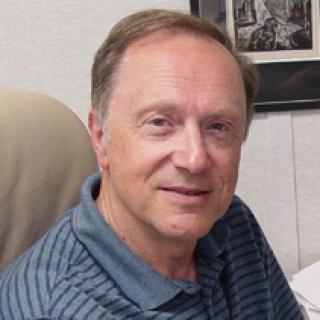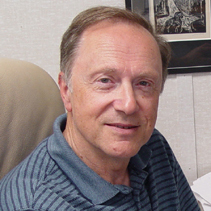
Alexander Wlodawer, Ph.D.
- Center for Cancer Research
- National Cancer Institute
- Building 37, Room 3035
- Bethesda, MD 20892
- 301-846-5036
- wlodawer@nih.gov
RESEARCH SUMMARY
Dr. Wlodawer is a structural biologist investigating the relationship between protein structure and function, mainly by high-resolution X-ray diffraction. Some of his areas of interest include elucidating structural features of macromolecules that could explain their importance to understanding cancer and AIDS. Examples include proteases, viral glycoproteins and enzymes, and proteins that are part of cell signaling systems, in particular cytokines and their receptors. He is also active in the analysis and remediation of crystal structures deposited in the Protein Data Bank.
Areas of Expertise

Alexander Wlodawer, Ph.D.
Research
Currently our Section concentrates on investigation of the quality of crystal and cryoEM structures deposited in the Protein Data Bank, with the aim of flagging models that exhibit problems such as poor fit to the map, missing water molecules, improperly modeled ligands, or even duplicated entries.
Crystallographic Studies of Proteases and Their Inhibitors
Crystallographic studies of proteases had been in the past an important area of research of this Section. We have been particularly active in the investigation of structure-function relationship in aspartic proteases, including clinically important retroviral enzymes. We have investigated structure-function relationship in retroviral proteases from several sources, such as HIV-1, FIV, RSV, EIAV, HTLV-1, and XMRV. Cockroach allergen Bla g 2 was shown to be an inactive aspartic protease and we solved its structure by itself, and in a complex with several specific antibodies. We have determined the structure of a unique histoaspartic protease, an enzyme with the pepsin fold, but a vastly different mechanism. We have been investigating serine-carboxyl peptidases (sedolisins), a family that was first characterized based on crystal structures solved in this laboratory and that is found in many different organisms.
We were also investigating the bacterial ATP-dependent protease Lon, having found that its proteolytic domain has a unique fold and thus establishes a new family of proteases with a Ser-Lys catalytic dyad. We have solved the structures of the proteolytic domain of A and B type Lon proteases, encoded by E. coli and Archaeoglobus fulgidus, as well as the N-terminal and α domains of E. coli Lon. We have been engaged in structural and biochemical studies of serine protease inhibitors EcTI,BbKI, and CrataBL, the latter being both an inhibitor and a lectin with potent anticancer properties.
Our extramural collaborators include Mariusz Jaskolski, D.Sc., Adam Mickiewicz University, Poznan, Poland; Wladek Minor, Ph. D., University of Virginia, Charlottesville, VA; and Tatyana Rotanova, D.Sc., Shemyakin-Ovchinnikov Institute of Bioorganic Chemistry, Moscow, Russia.
Publications
- Bibliography Link
- View Dr. Wlodawer's Complete Bibliography at NCBI.
Crystal structure of a retroviral protease proves relationship to aspartic protease family
Conserved folding in retroviral proteases: crystal structure of a synthetic HIV-1 protease
Crystal structure of interleukin 8: symbiosis of NMR and crystallography
High-resolution structure of the catalytic domain of avian sarcoma virus integrase
Crystal structure of XMRV protease differs from the structures of other retropepsins
Biography

Alexander Wlodawer, Ph.D.
Dr. Wlodawer received his Ph.D. from the University of California, Los Angeles, in 1974. Having completed his postdoctoral training at Stanford University, he joined the National Bureau of Standards in 1976, then moved to the ABL-Basic Research Program at the NCI-FCRDC in 1987. From October 1998 to March 1999, he was on sabbatical as an elected Visiting Fellow of Sidney Sussex College, University of Cambridge.
Dr. Wlodawer served as Chief of the former Macromolecular Crystallography Laboratory, CCR, NCI from 1999-2020. Dr. Wlodawer is Doctor Honoris Causa of the Technical University of Lodz, Poland. He was elected Foreign Member of the Polish Academy of Sciences in 2005, is a recipient of the 2006 NCI Mentor of Merit Award, was awarded the Heyrovsky Honorary Medal by the Czech Academy of Sciences in 2008, and is a recipient of the 2024 Casimir Funk Award. He is a member of the American Crystallographic Association and was elected ACA Fellow in 2013. He has served as an Editor of the FEBS Journal since 2007, as an Associate Editor of FEBS OpenBio since 2011, and as Editor-in-Chief of the Current Research in Structural Biology since 2022.
Job Vacancies
We have no open positions in our group at this time, please check back later.
To see all available positions at CCR, take a look at our Careers page. You can also subscribe to receive CCR's latest job and training opportunities in your inbox.
News
Learn more about CCR research advances, new discoveries and more
on our news section.